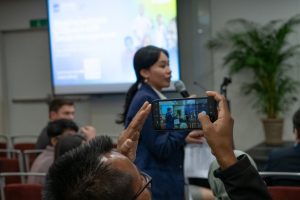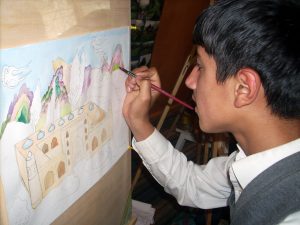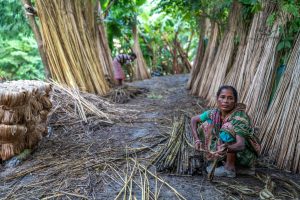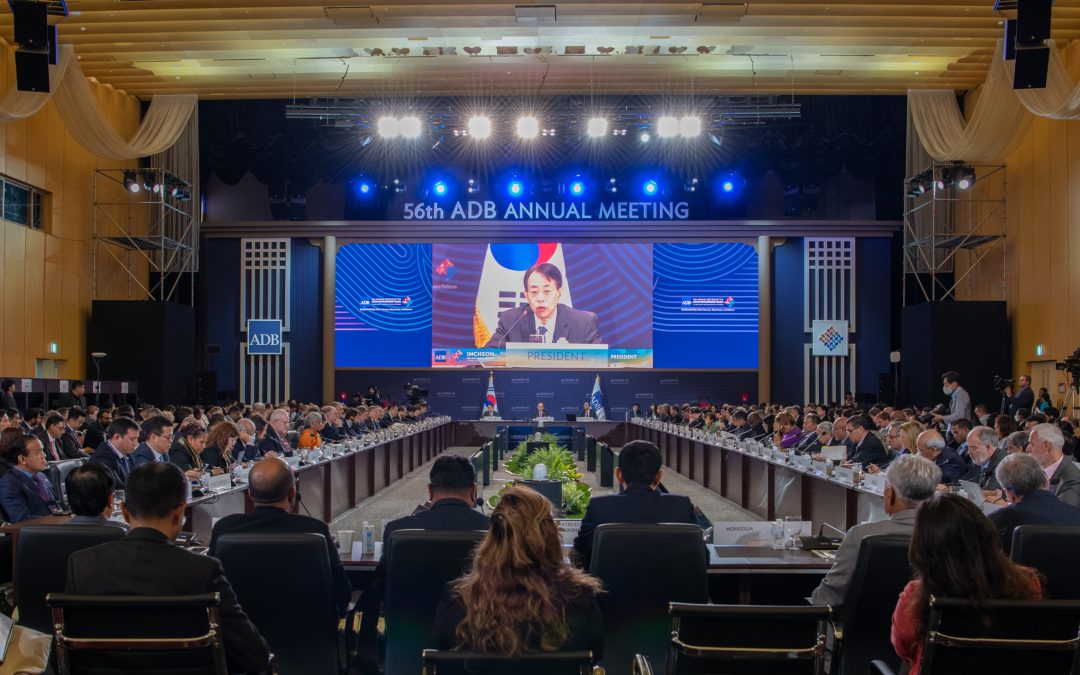Last May 2 to 5 in Incheon, South Korea, the Asian Development Bank held their 56th Annual Meeting with the theme, “Rebounding Asia: Recover, Reconnect and Reform”. Attended by representatives from the bank, member country governments, multilateral institutions, private sector and civil society, the meeting discussed how to address pertinent challenges in the Asia-Pacific region. The various sessions discussed ADB and their private sector partners’ approach in pursuing the just energy transition, digital transformation, food security, debt sustainability and innovative financing.
At the sidelines of the Annual Meeting, Reality of Aid-Asia Pacific, together with its members and partners, convened to develop a CSO Collective Statement and dialogue with ADB officials and other development actors, in order to amplify the demands of the region’s marginalized. With key messages encompassing unequal financing modalities, corporate capture of development, just energy transition and safeguards, the statement highlights how the bank has yet to demonstrate its commitment to a just, inclusive and sustainable development for all.
In an era of recovery and transitions from multiple crises, the 56th Annual Meeting of the ADB failed to tackle the bank’s potential role in exacting justice and accountability in addressing long-standing development challenges and the impacts on the region’s marginalized.
Ending debt dependencies and distress

Sarah Torres from RoA-AP presenting the CSO Collective Statement
In the CSO Collective Statement, civil society called on the bank to cancel debts, end policy conditionalities and abandon financing modalities that further widen inequalities and impoverish states. During the Annual Meeting, President Masa responded to the statement, highlighting how canceling debts would affect ADB’s good credit rating and lending operations in the region.
The bank fails to acknowledge its role in contributing to developing countries’ “chronic indebtedness,” as they continue to give onerous loans and impose conditionalities. Furthermore, through these lending and structural adjustment programs by IFIs, they continue to replicate the unequal power and economic relations between the global North and South, which have created the need for developing countries to increasingly lend to fund their development.
At the same time, while the ADB has pledged to mobilize a total of USD 100 billion of climate finance by 2030, a closer look reveals that 95% of this funding is given in the form of loans and invested towards mitigation efforts. As it is currently off-track to reach its ambitious target, the ADB launched the Innovative Finance Facility for Climate in Asia and the Pacific (IF-CAP) during the Annual Meeting, a multi-donor financing facility that will provide guarantees for parts of the Bank’s sovereign portfolios to enable it to free up capital and increase loans for climate investments. CSOs have raised alarm on the IF-CAP as it will “sink frontline communities in deeper debt,” as they are burdened with additional loans to fund adaptation and mitigation projects and enables donor countries and corporations to abandon their role in financing the climate crisis they caused.
While IFIs have reiterated the urgency to ‘evolve’ to address the crises the world faces today, it has continued to adopt the same approach to development – putting profit over people and the environment. Modalities for financing for development initiatives must be anchored on the framework of justice. Donor countries must meet their historical commitment to provide 0.7% of their Gross National Income (GNI) for Official Development Assistance. IFIs must cancel debt and provide grants to enable governments to provide essential goods and services and effectively respond to emerging crises. Climate finance must be provided in grants, channeled to adaptation projects and not to false, market-based solutions. The ADB should stop the corporate capture of development and instead, promote the use of public resources and democratically-owned systems to ensure access.
Just peace for conflict-affected, fragile states

Children Dream of Bright and Modern Future for Tajikistan and Its Neighbors (ADB/Flickr)
As the Asia-Pacific region faces increasing conflict, development actors must adapt its operations to provide immediate assistance, facilitate long-term development and ensure long-lasting peace. However, the bank and its partners have allowed for attacks on communities and civil society, with continued financing for corrupt, authoritarian regimes and lack of robust safeguards that will prevent or mitigate reprisals and retaliations for affected peoples.
In this context, the bank passed its FSA or fragile and conflict affected states (FCAS) and small island developing states (SIDS) approach. While the FSA adopts a ‘context-specific tailored support’ for these states, there is a need for the bank to adopt the Triple Nexus approach, incorporating humanitarian, development and peace initiatives to address the root cause of conflict. As the bank hopes to mobilize additional financing for FCAS and SIDS, these should be invested into projects and assistance that will contribute to long-lasting, just peace.
Furthermore, the bank must adopt and align operations with international human rights standards and environmental principles in all countries, especially in fragile states. The ADB should also incorporate civil society demands for a zero tolerance policy against reprisals in its new Safeguards Policy, foster an enabling environment for civil society, and provide effective grievance redress mechanisms to ensure rights are protected and upheld.
Ensuring effective development for all

Bangladesh: Participatory Small-Scale Water Resources Sector Project (ADB/Flickr)
The 2022 Development Effectiveness Review was also launched during the Annual Meeting, highlighting ADB’s progress in achieving its strategic priorities. While the bank claims that it has incorporated the development effectiveness principles of democratic country ownership, focus on results, inclusive partnerships and mutual transparency and accountability across its operations, the essence of these principles are not captured in the bank’s frameworks, strategies and approaches.
Democratic country ownership translates into development priorities that genuinely reflect the needs and determined by the people, which are determined through inclusive and participatory processes. The principle of focus on results ensures that development projects do not adversely impact the people and the environment, but contribute to inclusive and sustainable development for marginalized sectors and communities.
Inclusive partnerships can be attained by assigning a principal role to communities in the identification, definition, implementation and evaluation of development projects. In order to facilitate a just and equitable energy transition, the bank must contribute in cushioning adverse impacts on the workers and other affected sectors. Consultation and planning of projects must include the voices of vulnerable communities, such as Indigenous Peoples, farmers, fisherfolk, workers, rural women and children, and urban poor, who continue to be the most impacted by development projects. The bank’s meetings should also provide spaces for civil society and communities to highlight their perspectives and to shape the bank’s operational directions.
Lastly, communities and civil society should be provided full disclosure of information on projects, especially on the possible impacts of these on affected peoples. The bank should also exercise significant oversight over its partners’ activities to ensure transparency and accountability.
As a major development actor in the Asia-Pacific region, the ADB has a critical role in responding to the world’s crises today. In the same manner, it must also be held accountable for its role in contributing to worsening poverty, deeping inequalities, harmful conflict and environmental degradation, which have long-standing and irreversible impacts on marginalized sectors and communities. If the ADB is truly committed to calling itself a climate and development bank, it must provide financing and adopt approaches from the lens of justice.
***
For the monitoring of ADB projects, refer to: https://realityofaid.org/adb-projects/ or https://realityofaid.org/cso-aid-observatorio/
Header photo from ADB Flickr

